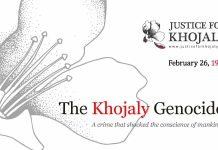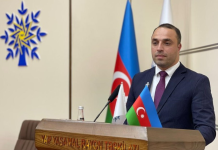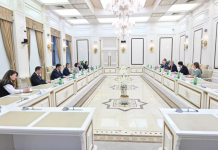“We are immensely proud to host this historic IPU Assembly in Tashkent. This event underscores Uzbekistan’s commitment to democratic values, international dialogue, and inclusive governance. We look forward to fruitful discussions that will shape the future of global parliamentary cooperation.”
TASHKENT, APR 7 /DNA/ – Uzbekistan is honored to welcome distinguished parliamentary delegations from across the globe for the landmark 150th Anniversary Assembly of the Inter-Parliamentary Union (IPU). This prestigious gathering, uniting 181 national parliaments and 15 regional associations, marks the first time the IPU Assembly is being held in Central Asia, with the vibrant city of Tashkent serving as the host.
The hosting of this high-level assembly reflects the international community’s trust and recognition of Uzbekistan’s significant progress in democratic reforms, parliamentary development, and representative governance.
I was also a member of the parliament for 15 years. I know and understand the responsibility of your noble mission aimed at making the world more peaceful and societies more prosperous.
You act as a strong bridge of friendship connecting peoples. You are a powerful force capable of taking care of people’s concerns and problems, and elevating them from the lowest levels of the system to the regional and, if necessary, to international level, and offering effective solutions.
You are indeed playing a key role in expressing the will of your people, elaborating national development models, and adequately responding to modern threats.
Taking this opportunity, I would like to express my sincere gratitude to the leadership of the Inter-Parliamentary Union, representatives of the legislative bodies of the member and observer states of the organization, as well as international parliamentary associations.
It is no secret that in recent years, armed conflicts, environmental and technogenic disasters, economic crises, trade wars, threats of terrorism and extremism have been increasing in various regions of the world.
In such extremely complex conditions, the time itself demands that parliaments increase their involvement and influence in maintaining peace, ensuring social development and justice in the world.
I would like to emphasize that the Inter-Parliamentary Union has become the most prestigious and largest multilateral institution in implementing parliamentary diplomacy and systemically addressing urgent issues based on the common interests of the peoples and states.
Its contribution to global stability and cohesion is reflected in the Union’s permanent observer status at the United Nations. The fact that more than 2,000 participants from almost 140 countries are taking part in today’s Forum clearly attests to this.
There is undoubtedly a profound symbolic meaning behind the fact that, at our initiative, the Assembly is being held under the slogan “Parliamentary Action for Social Development and Justice”.
According to analyses, over the past thirty years, the volume of world GDP has increased by 4.5 times. However, unfortunately, the incomes of poor layers of global population have not changed much.
If this trend persists, 575 million people in the world will live in poverty by 2030. Meanwhile, 84 million children will be deprived of the opportunity to attain education.
It is obvious that this situation causes great harm to the economy and society, weakens the functioning of socio-economic institutions, and ultimately limits people’s opportunities.
Certainly, identifying the root causes of such inequality and mitigating its consequences is a primary task for all of us.
I believe that the establishment and further expansion of multifaceted cooperation between the representative bodies of states in this direction will make a significant contribution to our common development.
I hope that parliaments will mobilize their full intellectual capacity and opportunities, utilize and exchange the best traditions and advanced practices, while uniting their efforts.
I wish you all every success and best of luck in such an honorable mission.
Today, the New Uzbekistan is taking bold steps towards irreversible democratic reforms and pragmatic foreign policy, conducting an open and active dialogue with the world community.

We are creating favorable conditions for building a strong and responsible parliament in our country and implementing effective parliamentary diplomacy.
We specifically defined the development of the parliamentary institution in the “Uzbekistan – 2030” Strategy as an important objective. In recent years, more than 20 laws aimed at enhancing the role of the legislative branch in the life of society and the state have been adopted.
The new Constitution adopted at a national referendum in 2023 has significantly increased the powers of parliament. The absolute powers of the Legislative Chamber of the Oliy Majlis were increased from 5 to 12, and the powers of the Senate – from 14 to 18. A number of presidential powers to form judicial, anti-corruption and anti-monopoly bodies have been transferred to the legislature. Parliament’s participation in the formation of the government has been further strengthened, as well as mechanisms of control over law enforcement agencies.
In alignment with these changes, the powers of the local Kengashes (councils) of people’s deputies in our regions were also expanded. In particular, more than 30 powers were transferred to the local Kengashes, and these processes are continuing steadily.
Currently, the share of women in our national parliament has reached 38 percent. We are particularly pleased that this indicator has been recognized by the Inter-Parliamentary Union and ranked the highest growth in the Asian region in the last thirty years.
Additionally, in 2021, youth parliaments were established for the first time ever under the chambers of the Oliy Majlis.
Currently, our national parliament has established close relations with nearly 100 foreign partners. Eighty joint friendship groups and commissions are functioning effectively.
Uzbekistan is advancing a number of international initiatives of global importance in the parliamentary sphere. In particular, the United Nations General Assembly adopted a resolution on “Enhancing the role of parliaments in accelerating the achievement of the Sustainable Development Goals”.
In cooperation with the Union, the Inter-Parliamentary Global Cooperation Forum is held every two years to achieve the Sustainable Development Goals.
Representatives of Uzbekistan actively participate in the Assembly of Asian Parliaments, the Forum of Central Asian Parliaments, the Parliamentary Assembly of the Organization for Security and Cooperation in Europe, the Parliamentary Assembly of the Commonwealth of Independent States, and other platforms.
In general, today our representative bodies have assumed significant responsibility in achieving sustainable development goals, supporting civil society institutions, social protection and poverty reduction, ensuring gender equality, fighting corruption.
In pursuit of these noble goals, our parliament is composed of people’s elected representatives who have won the trust of the electorate, are dedicated to the cause, have great potential, advanced thinking and rich experience.
Today, global changes in the world are presenting new challenges for the Inter-Parliamentary Union and our national parliaments.
Uzbekistan, as a full member of the Organization, is currently actively participating in the work of all its structures and forums. We have established productive practical cooperation on the priority areas of the global agenda.
Allow me to focus separately on the following issues.
First. Conflicts in various parts of the world pose a serious threat to global and regional peace and security.
I would like to once again emphasize that Uzbekistan strongly believes in resolving conflicts and tensions solely through diplomacy and peaceful negotiations.
We hope that the started negotiation process concerning the situation around Ukraine will ultimately bring to a positive outcome.
We believe it is crucial to find solutions to the most pressing issues based on the universal principles of international law, as well as the UN Charter and resolutions.
This includes the resolution of the Palestine-Israeli conflict through “Two state solution” principle, which we believe is the only fair way.
We cannot but mention Afghanistan – our neighboring country.
We must not forget our neighbor – Afghanistan. We believe it is important to prevent the isolation of this country on the international stage, to establish a constructive dialogue with the current authorities, and to view it as an integral part of the Central Asian region that offers new opportunities. We count on the support of parliaments on this matter.
Uzbekistan recognizes the United Nations as the only universal and global structure which has no alternatives. We fully support the systemic efforts undertaken by Secretary-General António Guterres to deeply reform this international organization and enhance its capacity.
At the same time, we wholeheartedly welcome the statement made by the Eurasian Group dedicated to the 80th anniversary of the Victory in the Second World War.
Second. Climate change, which has become a key challenge of our time and a serious obstacle to the development of our planet, must remain in our focus.
Its devastating consequences are, first and foremost, having the most profound impact on developing countries.
Now, it is more important than ever to fully meet our commitments undertaken under the Paris Agreement and in pursuit of carbon neutrality.
We also thoroughly discussed these issues at the recent International Climate Forum held in Samarkand.
We will achieve substantial progress only if parliaments make it a key priority to support forward-looking initiatives in national climate policies, facilitate the transition to renewable energy sources and “green” technologies.
We believe that climate change must hold a permanent place among the core items on the Assembly’s agenda.
Third. Women’s empowerment is one of the key prerequisites for social development.
According to analysis, if women equally participate in all sectors of the economy, global GDP would increase by 26 percent.
It is certainly encouraging that the share of women parliamentarians worldwide has risen from 11.3 percent in 1995 to 27.2 percent this year.
There is no doubt that through impactful measures to support women’s active role in public governance, we will achieve new heights.
I would like to specifically highlight that in recent years, our country has successfully hosted the Asian Women’s Forum and the 14th Summit of Women Speakers of Parliament in partnership with United Nations institutions and the Inter-Parliamentary Union.
Taking this opportunity, I hope that you will support our initiative to adopt the United Nations General Assembly resolution “Expanding the socio-economic, political, legal, and cultural-humanitarian activities of Asian women.”
Fourth. Youth empowerment to ensure their full participation not only in parliamentary activities but also in all spheres of public life is a highly urgent matter.
Raising a new generation for parliaments and establishing effective international cooperation in this area is a key factor for our future.
Therefore, I believe it is necessary to actively involve young people in the work of national parliaments and the Union, and to strengthen ongoing dialogue.
In this regard, I propose to establish a Global Platform of Youth Parliaments as part of IPU system, and hold its inaugural forum in Uzbekistan.
Fifth. Ensuring every individual’s right to social protection and providing high-quality services in accordance with international standards and norms is more relevant than ever.
By declaring Uzbekistan a social state, we have made comprehensive protection of the population a top priority of our policy. We are currently implementing the “From Poverty to Prosperity” program.
Over the past eight years, 7 million people have been lifted out of poverty, reducing its rate from 35 percent to 8.9 percent. This year, we aim to bring it down further to 6 percent.
We invite representatives of your national parliaments to actively participate in the upcoming international conference on poverty reduction, which will be held in our country this September.
Yet another important issue. The time itself is demanding that we strengthen systemic cooperation in the field of artificial intelligence, which is now rapidly penetrating all spheres of life.
If a model law on the ethics of AI use is developed, this innovative legal framework would offer a valuable template for all countries in effectively regulating this rapidly-evolving domain.
It is important to note that all our proposals and initiatives are fully aligned with the goals of the Inter-Parliamentary Union’s strategy.
At the same time, I believe our approaches will also be reflected in the Tashkent Declaration, which will be adopted based on the outcomes of this historic Assembly.
Certainly, no state or society can develop solely through the adoption of numerous laws or resolutions.
We can achieve our shared objectives by uniting on this path, strengthening the spirit of law-making, and mobilizing all our knowledge and experience towards this common goal.
I believe that during the nearly 70 events and debates held within the framework of the Assembly, there will be a comprehensive exchange of views on the most important tasks facing parliaments, and promising plans will be outlined.
All decisions adopted will open a new chapter in the history of our multi-faceted and long-term cooperation.
I wish you all strong health unwavering energy in your noble efforts to achieve the international community’s sustainable development goals, to ensure social justice and equality and promote high democratic values!
I wish every success and great achievements to the Assembly.

















